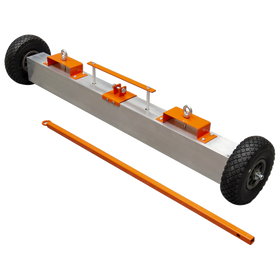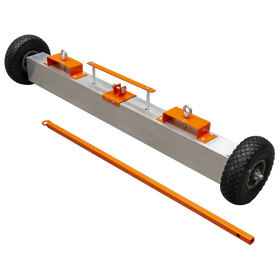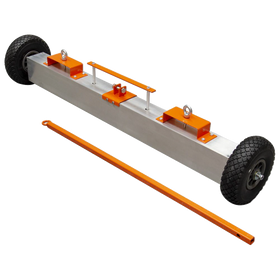
Life Without Magnets
A World Without Magnets? Impossible!
Imagine waking up tomorrow to a world where magnets no longer exist. It might sound like a minor inconvenience—after all, magnets seem like a niche tool, mainly holding photos to your refrigerator or playing with paperclips, right? In reality, magnets are fundamental to modern life, powering the technologies we rely on daily. Their sudden disappearance would ripple across every aspect of society, from transportation to communication and healthcare. So what would this alternate reality look like? You might be surprised.
No Electricity as We Know It
One of the most critical areas magnets impact is electricity. Generators that produce electricity rely on magnets to convert mechanical energy into electrical energy. The rotating turbines in power plants—whether driven by wind, steam, or water—depend on magnets for electromagnetic induction, the process that generates electric currents.
Without magnets, the entire electrical grid would collapse. There would be no power plants supplying energy, no batteries efficiently storing it and no sustainable way to harness renewable sources like wind or hydropower. Every home, office, and factory that runs on electricity would fall silent. In a world without magnets, we'd be sent back to a pre-industrial era, lighting our homes with candles and fuelling our lives with firewood.
Transportation Chaos
Magnets are crucial for various forms of transportation, most notably in electric vehicles (EVs) and trains. Electric motors, which rely on the interaction between magnetic fields and electric currents, would stop functioning. The electric car industry—heralded as the future of eco-friendly transport—would vanish overnight, leaving us reliant on fossil fuels once again.
Even conventional cars wouldn’t be spared. Starter motors, alternators and sensors all rely on magnets. Planes, trains and buses would cease to function efficiently and our world would grind to a halt, no longer connected by the rapid, easy movement of people and goods. High-speed magnetic levitation (maglev) trains, hailed for their efficiency and eco-friendliness, would become relics of the past.
Communication Breakdown
Our modern communication systems, including smartphones, computers, and the internet itself, depend on magnets in numerous ways. Hard drives use tiny magnets to store data, and even fibre-optic communication systems rely on magnetically controlled lasers.
Without magnets, not only would our internet infrastructure falter, but most of the devices that allow us to stay connected would be useless. The global digital network would break down, halting international commerce, disrupting global economies, and cutting us off from instant communication.
Medical Advancements Gone
Magnets play a crucial role in healthcare, especially in medical imaging technologies like MRI (Magnetic Resonance Imaging). MRIs rely on strong magnetic fields to produce detailed images of organs and tissues inside the body, aiding in the diagnosis of conditions ranging from tumours to brain injuries. Without magnets, this powerful diagnostic tool would disappear, taking away a critical method for early disease detection and life-saving treatments.
Magnetic therapies, like transcranial magnetic stimulation (TMS), used for treating depression and other mental health conditions, would also become impossible. Magnets are even being explored for advanced drug delivery systems and cancer treatments. Their absence would stunt medical progress and innovation, potentially costing lives.
Everyday Gadgets Would Fail
Many of the everyday objects we take for granted depend on magnets. Speakers and headphones, for example, convert electrical signals into sound using magnets. Without them, music, podcasts and phone calls would be silenced. Small motors in appliances like fans, refrigerators and washing machines also use magnets, so those conveniences would become obsolete.
Even magnetic credit card strips, keycards, and security systems would no longer function. Imagine the chaos of daily life without the simple act of swiping a card or tapping a key fob to enter a building.
Scientific Research and Space Exploration Halted
Magnets are vital tools in various scientific research fields, from particle physics to space exploration. Devices like particle accelerators, which allow scientists to study the fundamental building blocks of the universe, depend on powerful magnetic fields to guide and accelerate particles.
In space exploration, magnets are used in spacecraft navigation systems and propulsion technologies. Without them, our ability to explore and understand the universe would be severely limited, halting advances in science and technology that are critical to our future survival and knowledge.
Magnets Take Us Out Of The Dark Age
Magnets are far more than just playful curiosities - they are the invisible forces behind many of the technological marvels that define our modern world. Their disappearance would set humanity back centuries, undoing countless scientific, medical and technological advancements. The conveniences and necessities of contemporary life would dissolve, thrusting us into a dark, pre-electric age.
Next time you stick a magnet to your refrigerator, take a moment to appreciate the unseen power that drives everything from your smartphone to the power plant down the road. Our world is truly built on magnets—and it wouldn’t be the same without them.










































































